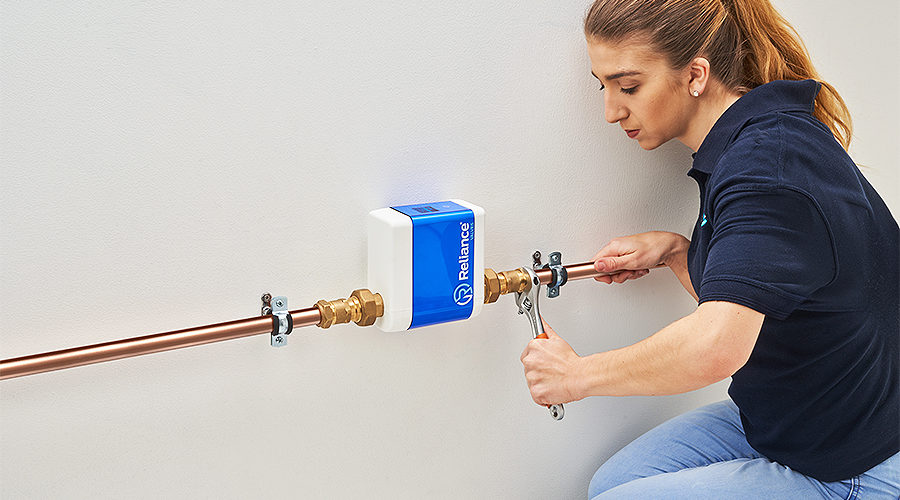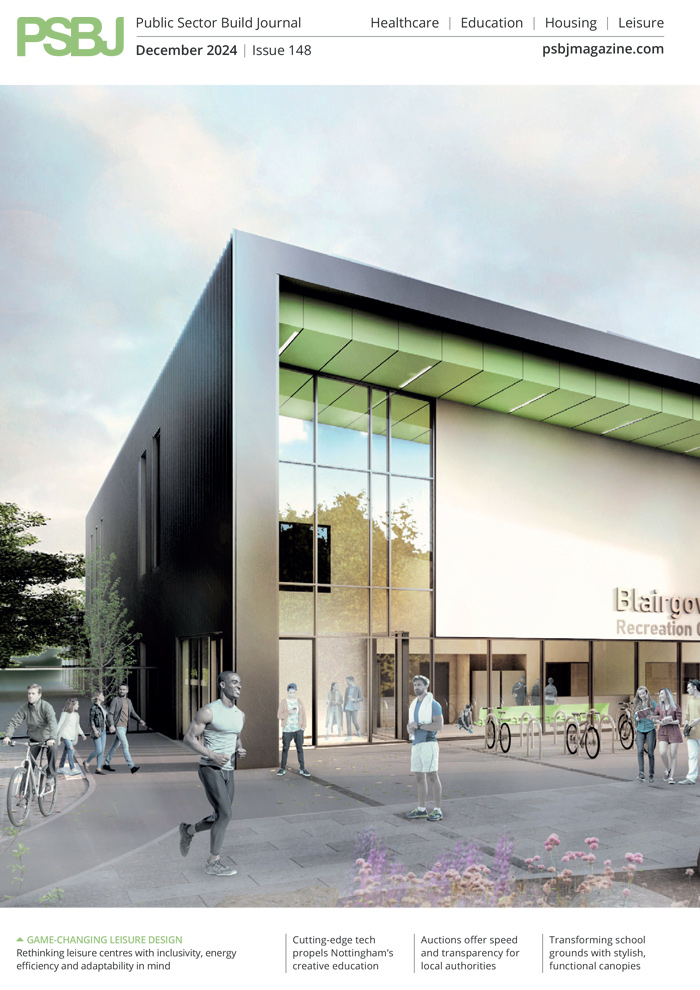With an ambitious new-build program in the starting pens, the construction sector is gearing itself up to deliver safe, energy-efficient and long-term environmentally-friendly buildings that can withstand the tests of time. In this feature, Martin Nicholson, Divisional Director of Specification at RWC, outlines how green plumbing technologies can lay the foundations to create the green new builds of the future.
RWC
If we want to build truly greener homes and commercial dwellings, we need to consider first and foremost what goes on behind closed walls. Relying on plumbing technologies that are fast to install, minimise the risk of costly leaks and are easy to maintain in the long run is essential to keeping costs down and ensuring that the occupants of the building face minimal disruption should maintenance be required. However, with energy costs rising at a worrying pace and legislation, such as Part L of the Building Regulations, aiming to reduce the UK’s carbon footprint, we need to ensure that our plumbing technologies are becoming more and more green.
So, what can specifiers do to ensure that new plumbing technology is green and environmentally friendly for the new generation of builds? There are the obvious options of planning low-flow toilets, installing solar panels or usage meters, but one would argue that we need to start by making the plumbing that feeds into these systems as efficient as possible. If our plumbing technologies are efficient, by minimising the waste of water and heat in our systems, we are able to reduce the quantity of natural resources required to supply water to a building or heat it at the source.
It all starts with damage control…
When it comes to plumbing, the three most common factors that cause wastage are leaks, temperature control and inadequate installation. If we can plan plumbing technologies that control potential damage before it even occurs, we are one step closer to truly greener builds.
As already mentioned, we need to consider what goes on behind closed walls. The number one enemy of green plumbing, leaks are not only incredibly hard to detect, they can cause vast structural damage, and lead to huge water wastage and, in turn, rising energy costs. Not to mention the disruption and financial burden repairs can cause if walls need to be opened up to fix a leaky pipe or fitting. A staggering £930m is paid out by insurances for water damage in the UK every year, and with an estimated 43% of building owners experiencing leaks, damage control is vital. Simply put, leaks are every building owner’s nightmare.
Preventing leaks from appearing long before they can cause any real damage is easy with RWC’s Reliance Valves MultiSafe Leak Detector Control Valve. This smart plumbing technology sends an alert when unusual water fluctuation is detected, and automatically shuts off the water supply. It is also capable of detecting when even very small amounts of water continue to leak over time, allowing micro leaks to be stopped before they can cause costly damage to the building. This translates to huge water and energy savings, making the plumbing system significantly more sustainable, while also earning projects extra BREEAM points, making them an attractive and eco-friendly investment.
What makes the smart technology of the MultiSafe Leak Detector a truly green plumbing technology is that it also monitors water usage and patterns, and so identifies probable areas for water conservation. As it can be connected to multiple connections on the same Wi-Fi network, it can centrally control several devices in large buildings or apartments, making it the ideal plumbing technology to be installed in new builds.
Conservation is the key to greener new builds
Buildings require a lot of water and energy, for both washing and heating, but unfortunately, we do not always use water and heat in the most efficient way. Whether it is taps being left open for too long, boilers needing to work harder than necessary or windows being left open while the heating is on – a lot of water and energy is wasted daily across the UK. In order to optimise water conservation in new builds and make them truly green for the future, we need to ensure plumbing technologies that are installed are as efficient as possible.
To achieve this, we need to look at the valves that maintain the flow rates within the plumbing system. By installing intelligent valves, such as Reliance Valves Floreg Isolating Valves, flow can be maintained at the desired level. The Floreg Isolating Valve can either be shut off completely, the water flow can be restricted with the external lever, or the water flow can be controlled via a flow-limiting cartridge installed to a predetermined level from 4 to 15LPM.
This is particularly useful for toilets, which often have a six- or nine-litre flush option. If used efficiently, this could translate into serious water conservation several times a day. Like the MultiSafe Leak Detector by Reliance Valves, these plumbing technologies both aim to address one of the key areas to ensure our future builds go green: conserving water.
The easier the installation, the greener the new build
A lot of planning goes into the design and construction of new builds, but to ensure that they are as green as possible, we must also consider the materials that end up in a new building. Even the smallest fitting in a large plumbing system can play its part in creating greener new builds. When we start to specify what the plumbing in a new building will look like, we should think of ways to make the installation as fast and efficient as possible. This will allow installers to save time, enabling them to get more jobs done in less time, while also reducing the overall cost for the building owner.
The plumbing technologies that helps us achieve this goal are RWC’s JG Speedfit and SharkBite push-fit systems. The lightweight range of JG Speedfit and the brass push-fit connectors of SharkBite are ideal solutions for efficient plumbing in new builds, as they are easy to install due to the lack of tools required to be assembled, so no potentially harmful flame or glue is needed to securely connect the pipes, valves and fittings with one another.
Both push-fit ranges, JG Speedfit and SharkBite, further address our goal to create green new builds, as they are completely corrosion proof. They, therefore, last much longer than other systems and require less maintenance, making both the installation and maintenance faster and greener in the long run. The increased lifespan of RWC’s push-fit systems, the ease of installation, modification and maintenance, and the lack of tools required all make for a far more efficient and environmentally-friendly plumbing technology available on the market today.
Green plumbing technologies for a greener future
Across the UK, we are on a mission to build back greener to help ensure a better future for our planet. While plumbing technologies cannot save the planet on their own, they play a vital part in ensuring that our new builds are as energy efficient and environmentally friendly as possible. Green plumbing technologies will not only make our buildings more sustainable in the long run, but they will also help us conserve resources and reduce wastage, being kinder to our environment overall.






